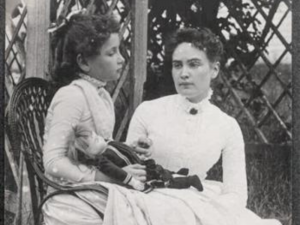Increasingly parents are becoming aware of potential sensory issues in their children. They may see their children being overly sensitive or under-reacting to touch, movement, sights, or sounds; their children may seem easily distracted and show delays in speech, motor skills, or poor body awareness; or their children might have difficulty in learning new tasks or have immature social skills and exhibit difficulty in calming themselves if they get upset. These may all be signs of Sensory Integration Disorder, in which children struggle with information coming through their senses (sight, hearing, touch, taste, smell, interoception, proprioception, and spatial orientation). As an example, with music, if the radio is on, the child may become greatly upset and cry (hypersensitivity), or the child may demand the radio be kept on in order to feel calm (hyposensitivity).
For a child who is hypersensitive to music, a music therapist may work with this child to help them become familiar with simple musical rhythms over the course of time (creating predictability and therefore easier sensory processing), that eventually fosters a deep love of music that can help in all sorts of situations such as transitions, in which the child has to move from one activity to another.
For a child who is hypersensitive to music, a music therapist may work with this child to help them become familiar with simple musical rhythms over the course of time (creating predictability and therefore easier sensory processing), that eventually fosters a deep love of music that can help in all sorts of situations such as transitions, in which the child has to move from one activity to another.
Below are some additional benefits of using music therapy for Sensory Integration Disorder:
Children love music
We’ve all witnessed the impact that music has on children. Even those with hypersensitivity to music develop a love for it (as mentioned above). This form of therapy therefore becomes enjoyable and can facilitate relaxation and communication much more effectively.
Music is flexible and can address different needs
Children with Sensory Integration Disorder tend to fall on a spectrum of type (hyper or hypo) and intensity of reaction or lack of reaction to sensory stimuli depending on the particular sense. The music therapist works with the child to understand their specific needs and how to help them make steps using the flexibility of music (type, volume, etc.).
Music can be used in conjunction with other sensory activities
The music therapist can assist in sensory processing beyond just listening capabilities. An example of this is the use of a small trampoline for jumping and the playing of music to address proprioperception, or the child’s awareness of his/her body in space. Likewise, to assist with tactile or touch, the music therapist may bring in actual objects from songs such as leaves from a tree for the child to feel while singing the song.
Ultimately, it is the skill and perception of the trained music therapist who becomes intimately aware of the needs of the child and creates a specific plan for them that will bring a great amount of progress and joy in their lives. If you or someone you know has a child with Sensory Integration Disorder (or suspects they may have) please contact me and we can talk.



